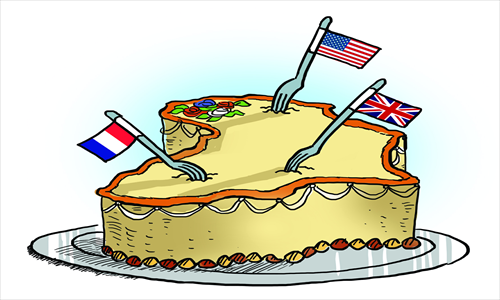Islamic tradition wrecked by jihadists’ wrath in Mali

North Africa now faces rising Islamist jihadi terrorism in large measure owing to failed Western policies. Although endemic poverty and ethnic issues are factors, US and European intervention in the Middle East and North Africa set the stage for the present situation.
To properly assess the developing situation in its historical context is helpful. Looking back as far as the 8th century, we see that Islamic forces swept across North Africa and thereby established Islam as the dominant religion in the region.
Over time, by means of the trans-Saharan trade routes dealing in gold, slaves and salt, a moderate form of Islam spread into the sub-Saharan region.
Over 1,000 years ago, the traditional center of Islamic culture was established in Timbuktu in the present war torn Mali. Tragically, Islamic fundamentalists are now destroying much of the ancient Islamic heritage in the region because it represents the moderate Sufi approach to Islam that the terrorists oppose.
Today, the Islamist terrorists espouse fundamentalist forms of the religion such as Wahhabism and salafism. The terrorists seek to eradicate the traditional moderate forms of Islam practiced in the region and to replace them with the kind of fundamentalism promoted by Saudi Arabia and Qatar. The terrorists, therefore, destroy ancient religious shrines and murder those in opposition to their brand of Islam.
The US invasion of Iraq and the counterinsurgency war in Afghanistan sent shock waves through the broader Middle East and North Africa region. Extremist groups linked in various ways to Al Qaeda multiplied as a consequence.
After a decade of such counterproductive US policy, the situation was then made worse by the Anglo-French operation to topple Libya's strongman leader into which the US was also drawn.
At the same time, Washington pushed hard elsewhere to support the Arab Spring uprisings in the Arab world in Tunisia, Egypt, and Syria, thereby creating still further instability and opportunities for extremists.
As the Arab Spring turned into Arab Winter, the Anglo-French combine intensified the attack on the Bashar al-Assad government in Syria.
Again, Washington was drawn into the fray, but this time General Martin Dempsey, chairman of the US Joint Chiefs of Staff, firmly opposed overt military intervention, having learned a lesson from Libya. US aid for the toppling of the Syrian strongman, therefore, is at the level of covert action coordinated with London and Paris.
Meanwhile, terrorism escalated in the Maghreb region of North Africa as Al Qaeda and related groups strengthened their forces in the region. Libya became an arsenal for the regional terrorists, as the stockpile of weapons of the former regime was made available to international jihadists.
In the wake of the murder of the US ambassador to Libya, it was revealed that the US, in fact, was allied with the Al Qaeda related groups in Libya which helped to overthrow Muammar Gaddafi. These same forces are today dominant, particularly in eastern Libya, and serve to support jihadi terrorism against not only Syria but also against nearby countries in North Africa such as Mali and Algeria.
The terrorist attack in Algeria has dramatized to the entire world the spreading jihadi activity in the region.
The situation in Mali is complicated by the fact that the minority Tuareg ethnic group, located in resource rich northern Mali, feels it has been maltreated and exploited over the years by the rulers in southern Mali.
Thus, the door was open for Islamist extremists to penetrate the Tuareq community which is seeking some autonomy and better social and economic conditions.
In Mali, foreign jihadists, likely supported by funds from Saudi Arabia and Qatar, and local extremist groups combined to create the present situation.
Clearly, the solution calls for the eradication of foreign terrorists while at the same time improving the social and economic situation for the minority Tuaregs in the north. It remains to be seen how effective the French intervention will be.
It is hard to escape the conclusion that Western intervention in the Middle East and North Africa has produced profound instability. The Arab Winter must not turn into winter in the Maghreb.
The author is an educator and former senior professional staff member of the Senate Committee on Foreign Relations. opinion@globaltimes.com.cn